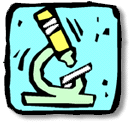 |
Science is important, not only to physicists and researchers,
but to average people as well. In this essay, I will be discussing
why science is important for a career in the international job
market, and why it is important for Canada to know how well students
are doing in science. |
Throughout the history of mankind, science has been important.
The quest for an understanding of the world around us has driven
men and women of all races, ages, and ethnic backgrounds to great
heights. In early Greece, Aristotle, a great philosopher and
one of the most brilliant minds of ancient times, proposed theories
as to why objects moved in the way that they did. Although these
theories were incorrect, they nonetheless show how even in early
times, a desire to understand the world was one of the things
that fueled the minds of great thinkers.
Although modem science is drastically different from the relatively
simple theories of Aristotle, the importance of it in society
has not changed. Science is still a respected field, and those
people who expand humanity's knowledge of it are still given
credit for their accomplishments.
One of the ways science has changed, however, is in its application.
For a long time, science was simply learning for learning's sake.
There were very few, if any, practical applications of the knowledge
that these early scientists unlocked. Whether the sun revolved
around the earth, or the earth revolved around the sun, didn't
make much difference in the lives of ordinary people. The farmers
knew that the sun would help grow their crops; it didn't much
matter which celestial body was considered the centre of the
universe. Today, though, science has many practical applications
that cannot be ignored.
Our lives have been altered tremendously by science over the
past few centuries. A rapid accumulation of knowledge and technology
has led to widespread changes in our lifestyle. Our lives are
no longer governed by the sun - the light bulb saw to that. Communications
have evolved so quickly, that it is now possible to be in contact
with people all over the world via the Internet.
This rapid evolution of science and technology has meant a
drastic change in the job market as well. Medicine, law, engineering;
no field has been left untouched. At the same time, competition
for precious jobs has been growing. This means that unless one
is skilled in these new technologies, you have precious little
chance of getting a job. Although knowledge is still accumulated
purely for the joy of learning, practical application of this
knowledge is also very important. Science, and a knowledge of
science, has taken over the economy.
Even forty or fifty years ago, science didn't play as large
a role as it does today. You could fish or farm for a living
without having to worry about science. To do the same job today,
however, you would need a knowledge of biology, aquaculture or
agriculture, as well as an understanding of the practical uses
of genetic engineering. For example, what if your competitor
started raising genetically altered chickens, that produced,
on average, twice as much valuable meat as 'traditional"
chickens? If you didn't have any knowledge of how genetic engineering
works, or couldn't afford to hire someone with that knowledge,
you would be at a distinct disadvantage, and might be driven
out of business.
The gearing of the job market towards science has also meant
a change in education. In order to prepare for a job in this
science-oriented job market, students must now have a good understanding
of the sciences. This has meant a greater focus on these subject
areas by the government, and since the government needs feedback
in order to maintain a good quality of education, it needs to
know how well students are doing in science. Without this feedback,
the government would be blind as to how its students are performing.
If problems arose, the government would be unaware of them, and
could not take steps to rectify the situation.
For example, consider what would happen if the government
decided to introduce a new science program, starting this year,
with those students in grade one. The program is less than satisfactory.
The government continues with this program throughout the students'
school years, since it believes the program is the best thing
for students, and has received no information to the contrary.
When the students graduate university, however, they discover
that they do not have the skills and knowledge necessary for
a good career. All of a sudden, since it didn't know how well
its students were doing, the government realizes that it has
made a mistake. It has made a mess of the education of an entire
generation, and now has to do something about it.
This is why it is not only important, but imperative that
the government, as well as the rest of Canada, be aware of how
its students are doing in science. For Canada to remain competitive
with the rest of the world, it needs to make sure that its young
people are well educated in the sciences, so that they will be
able to go out and secure a good job, hopefully without too much
difficulty.
Science is important for everyone who wants a career in the
international job market, not just physicists, chemists, and
biologists. Since this is the case, it is incredibly important
that the government, as well as the rest of Canada, know how
students are doing in science, and whether or not they understand
what is being taught. |